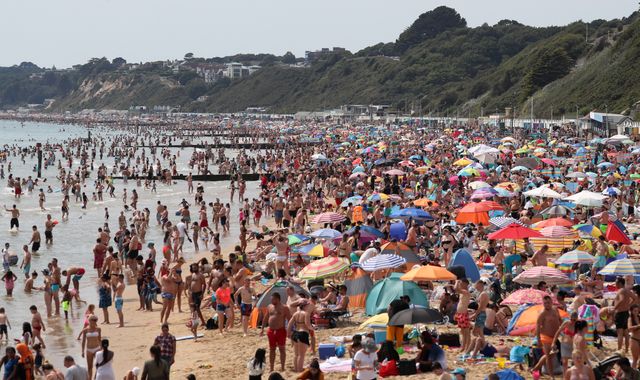Scientific advisers to the government set out a "reasonable worst-case scenario" of 59,000 coronavirus deaths in the UK over the summer months, newly-released documents show.
The Scientific Advisory Group for Emergencies (SAGE) calculated the figure for "direct Covid-19 deaths" in hospitals, care homes and the community from 18 May to 6 September.
It was included in a paper titled "Covid-19 reasonable worst-case planning scenario" from 21 May which was published for the first time on Friday.
SAGE also said in the document that relaxing lockdown restrictions "could easily lead to an R of approximately 1.5-1.7".
"Enough is enough." @GabrielScally and #IndependentSAGE get tough on the government, and issue an emergency plan to prevent the country from becoming overwhelmed with the coronavirus. pic.twitter.com/hq3qoaaMs6
— Independent SAGE (@IndependentSage) October 16, 2020
According to government data, there were 6,476 deaths within 28 days of a positive Covid-19 test between 18 May and 6 September.
The number of people who died with coronavirus mentioned in their death certificate was 9,524 over the same period, according to the Office for National Statistics (ONS).
In its May document, SAGE noted that its calculations were "scenarios, not predictions" and they were "subject to significant uncertainty".
"These outputs should not be interpreted as a forecast of what is most likely to happen, but rather scenarios to inform planning at the time," the government said.
"Reasonable worst-case scenarios are considered for planning to ensure that we are able to respond to a range of scenarios."
Under the reasonable worst-case scenario, SAGE said there could be 130,000 people admitted to hospital with Covid-19 from 18 May to 6 September, with 19,000 patients requiring intensive care treatment over the same period.
It also set out a breakdown of Covid-19 deaths in each UK nation under the reasonable worst-case scenario, with 53,000 in England, 3,500 in Scotland, 1,300 in Wales and 1,400 in Northern Ireland.
SAGE calculated the figures using a scenario in which the easing of restrictions from 1 June would lead to an increase in the R number to 1.7 for four weeks.
The whole Labour movement should unite behind Independent Sage's Emergency Six Week Plan to fight Coronavirus. https://t.co/VUMM9e2ct3
— Richard Burgon MP (@RichardBurgon) October 16, 2020
Under the scenario, restrictions would then be reimposed, reducing the R number to 0.7, before being relaxed again with the R number returning to around 1.
In reality, the R number has not been 1.7 since the first lockdown eased and has only risen substantially above 1 in the last month.
In the May document, SAGE said its members agreed that "several different combinations of factors as part of relaxation of behavioural and social interventions could easily lead to an R of approximately 1.5-1.7".
"This could be any mix of non-essential retail and more people returning to work, or minimal school reopening with extensive increase in leisure contacts," it added.
Latest Stories
-
Heavy security at EC G/A Regional office ahead of re-collation
51 minutes -
Livestream: Newsfile probes ORAL, re-collation & transition blues
1 hour -
Ghana-Russia Centre supports pupils of Pakro-Zongo basic school
3 hours -
Ghana launches Malaria Youth Corps, leveraging youth power in fighting malaria
4 hours -
Book Review – All’s Well (Feehi): Living a Life Guided by Grace by Abednego Okoe Feehi Amartey and Theodora Dame Adjin-Tettey
5 hours -
French for health: A new initiative by French Embassy in Ghana
11 hours -
Ghana slowly retracing steps back to path of macroeconomic stability – Deloitte
11 hours -
Ghana’s debt service-to-revenue ratio reached all-time high of 127% in 2020, highest in SSA – IMF
11 hours -
Ghana’s consolidation efforts under IMF progamme to continue to be based on revenue
11 hours -
GPL 2024/25: Hearts beat 3-1 Chelsea to return to winning ways
12 hours -
Ghana set to host second Flag All-Star Game in Accra
13 hours -
Angor CREMA: Empowering Ghana’s coastal communities for sustainable growth
13 hours -
The Legon VC… and childhood memories
14 hours -
The absurd inequality of climate work: Overcoming dilemmas in the green transition
14 hours -
ORAL team receives first dossier of ¢500m National Service ghost names scandal
15 hours

